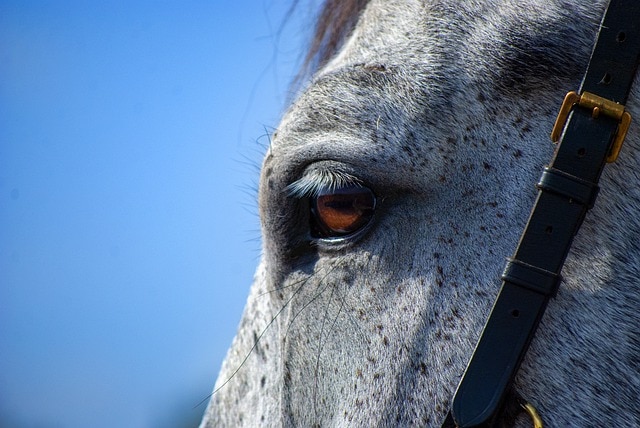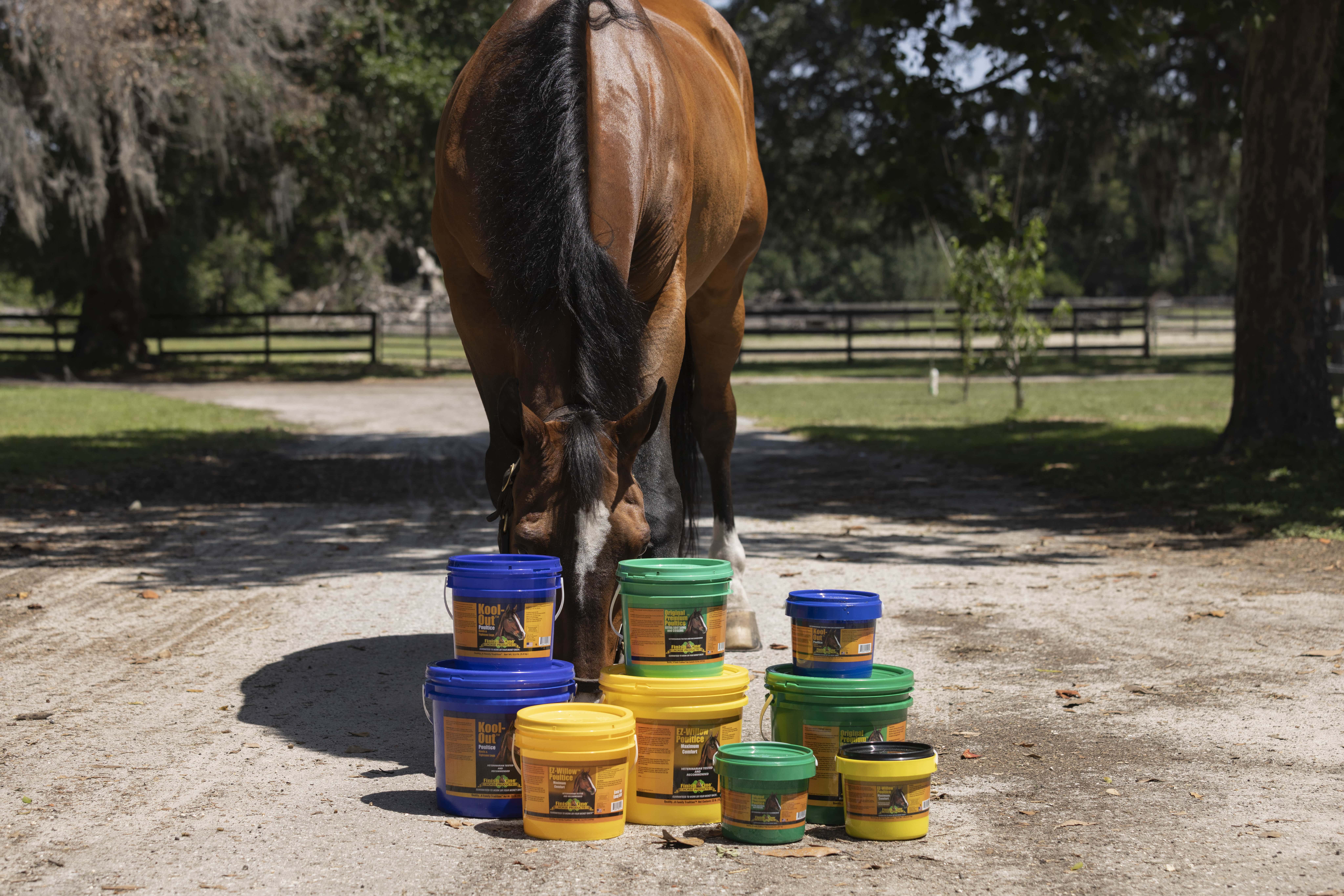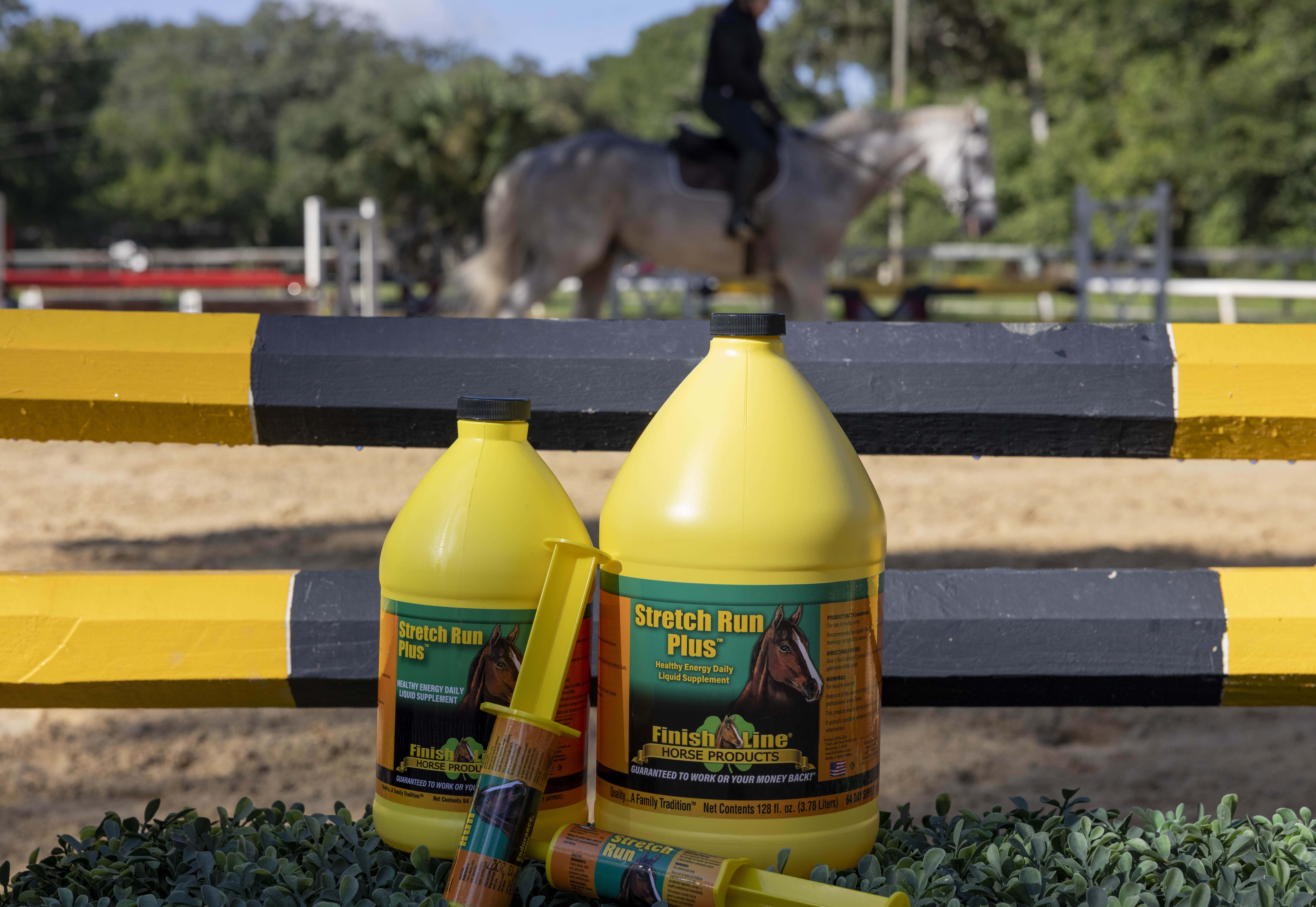B vitamins are complex and essential to a horse’s health. Bacteria in the hindgut produce some B vitamins, while others are gained from the horse’s diet. Many horses get all the vitamin B they need naturally, but those that are easily stressed or frequent competitors can benefit from equine supplements.
“There are eight different types of B vitamins.”
Types of B Vitamins
According to Equine Therapy, there are eight different types of B vitamins horses need to maintain their health. Biotin assists with keratin production and promotes healthy hooves, supporting competition horses whose feet pound the ground day after day. Vitamins B1, B2 and B6, also known as thiamin, riboflavin and pyridoxine, help with metabolism and promote healthy, calm attitudes. Thiamin works to metabolize fats, while riboflavin assists with proteins. Both of these also target carbohydrates. Meanwhile, pyridoxine focuses on metabolizing protein.
Vitamin B3, also known as niacin, supports healthy digestion and skin. Proper digestive functions enable your horse to process nutrients from his feed, maximizing the energy he acquires so he can perform his best during competition. The remaining two vitamins, folic acid and B12, work together to produce hemoglobin. Vitamin B12 also supports healthy enzymes and helps metabolize proteins, carbohydrates and fats.
Deficiency
While a B vitamin deficiency is not terribly common, it is good for owners to recognize the symptoms. Horses that don’t get enough B vitamins often lose their appetite. They also tire more easily, which can be difficult when preparing or competing for an event.
Vitamin B occurs naturally in plants, but it starts to degrade quickly once the plants are cut. In addition, these nutrients are water soluble. Horses that do not have access to vitamin-rich feed sources can benefit from vitamin B supplements such as Finish Line’s Ultra Fire or Total Control. These all-natural products are an economical, efficient way to support your horse’s diet, providing all the necessary nutrients for healthy muscles and a strong metabolism. While it’s best to only give your horse the amount of vitamin B it needs, don’t let the risk of an overdose worry you. Any excess isn’t stored in the body but is flushed out when the horse urinates.
In addition, horse vitamins support the health of equines that train or compete vigorously. Many owners report that vitamin B supplements give their horse increased energy. As Equinews notes, additional vitamins can give a horse meeting the minimum nutritional requirements the boost it needs for optimum performance. These supplements cannot replace proper training – they will not make your horse run faster or respond to your commands more quickly. However, they do support the functions necessary to help your horse perform his best. Vitamin supplements can also assist horses in times of stress, promoting a healthy attitude and keeping them calm during travel or in the moments prior to competing.








